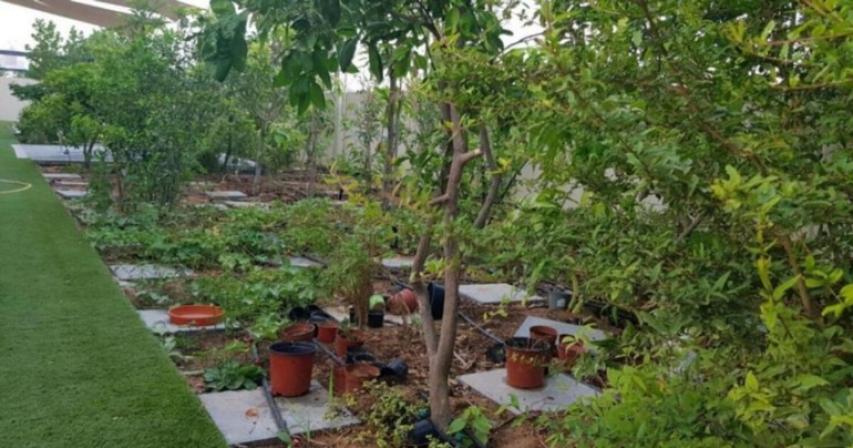UAE: Planning to import plants?

Are you running a plant nursery based in the UAE and looking to import seeds or saplings to expand your inventory or grow your business?
To carry out this process you need to receive approval from the Ministry of Climate Change and Environment (MOCCAE).
Foreign agricultural shipments consist of seeds, tubers, seedlings, plants, palm seedlings and honeybees.
The shipments will be inspected upon arrival and released only after meeting all import requirements.
Here's how you can get the importing permit:
Documents
For importing seeds, tubers, you will need:
-
The producing company or exporting company must send you a letter of authorisation that confirms its lack of objection to registering and trading seeds and tubers in the UAE.
-
The producing company issues a technical certificate which the country's competent authority verifies to confirm the seeds and tubers are free of genetic modification.
-
The producing company in the country of origin must have a license authorization certificate issued by the competent authority for seed and tuber production.
-
A technical sheet issued by the producing company to include the following information: The producing company releases a technical sheet containing information about its name and address along with scientific details of the item (Genus, species and varieties), origin, group designation (hybrid or plain), pest resistance and purity percentages.
The establishment needs a valid certificate from the Emirates Authority for Standardization and Metrology or from a certification body that follows European, American, Japanese, Saudi, Tunisian, Indian, New Zealand, Australian or Canadian organic agricultural production standards to import organic seeds and tubers.
For releasing the batch:
For all shipments (seedlings, plants, palm seedlings, seeds & tubers, bees):
-
Certificate of origin
-
The competent authority from the export country issues the required phytosanitary certificate.
-
Documentation must include either a customs declaration copy or a bill of lading or delivery order copy.
-
Invoice or product list
For seed shipments (in addition to the above documents, importers must attach):
Seed shipments require either an ISTA system-approved germination and purity testing certificate or one from a government laboratory in the seed's country of origin or an accredited laboratory within that country.
Steps, fees, service time
-
Access MOCCAE website or download GeoEnvAe app from Apple or Android app stores to apply for the service
-
Pay the fees
Importers need to complete an online application and fee payment to release batches after initial inspection upon arrival. Once all necessary inspections have been finalized the electronic release permit will be issued. In certain instances, visual inspections or laboratory tests might be necessary.
-
Dh100: A fee of Dh100 will be charged to obtain permission for importing seed consignments along with tubers, plants, palm seedlings, outdoor saplings, and honey bees.
-
Dh200: The analysis request of any water sample or plant or soil sample requires a fee of Dh200.
-
Dh500: A Dh500 fee covers the release authorization of seed, tuber, plant, palm seedling, outdoor sapling, and honey bee consignments.
The permit issuance process takes approximately five business days to finish and these permits remain valid for a six-month duration.
General requirements
-
The importer must maintain a valid agricultural activity license to import. Click here to learn the process for obtaining one
-
Before shipping consignments from their country of export, importers must acquire the appropriate permits.
-
Importing agencies will refuse any items that lack mention in the issued permit
-
MOCCAE's electronic services system must contain a list of items that need importation.
Special requirements
Seeds and tubers
-
Agricultural activity licences for establishments must include authorization to import and export seeds.
-
The packaging for imported seeds requires stainless steel construction or aluminium-lined paper bags and plastic with burlap containers to protect the seeds from damage and maintain their vibrancy.
-
Packages should have labels indicating all the required information, written in a clear, non-erasable, non-crossed-out, or non-scratched handwriting, in both Arabic and English, or one of them, as follows: All necessary information must be shown on packages through clear and permanent handwriting in Arabic and English or just one language including name of crop and variety, seed production date and shelf life, operational number, purity percentage and germination rate, producing company name and origin details, chemical treatments done on seeds before packaging, and the net weight or seed count inside the bag.
Seedlings and Plants
-
The establishment needs to possess an agricultural activity licence which grants permissions for the import and export of both plants and seedlings.
-
Seedlings must be free of natural soil before entry.
-
The phytosanitary certificate for plant origin packaging must contain a declaration of treatment procedures applied to the packaging while importing agricultural consignments.
-
The phytosanitary certificate for imports of (tomatoes, eggplants , potatoes, peppers and beans) from Tuta absoluta infected countries must state that the consignment contains no pest life stages.
-
The phytosanitary certificate for shipments of chrysanthemums, carnations, bananas, tobacco, rice, or geraniums from countries with fall armyworm infestations must state that the shipment is free from the fall armyworm pest.
-
Countries with reported cases of Bayoud disease or lethal yellowing disease and red palm weevil infestations face import restrictions for plants and their parts and offshoots.
-
Imports of tissue-cultured palm seedlings are permitted when their average stem diameter remains below 5 cm.
Honeybees
-
An agriculture activity licence that covers importing and exporting bees is required for the establishment.
-
Shipments of bees showing symptoms of the following diseases and pests will not be allowed to enter: Bees with signs of the following health issues will be denied entry: Varroa mite, Acarapis (tracheal mite), Nosema disease, viral paralysis disease, bee louse, amoebiasis, American foulbrood, European foulbrood, chalkbrood disease and sacbrood disease
-
Importation of Asian bees and African bee breed and giant bees is strictly forbidden.
-
It is prohibited to import bees from countries that are affected by the following pests: Bees cannot be imported from nations where small hive beetle (Aethina tumida) and tropilaelaps spp. pests are present.






Comments